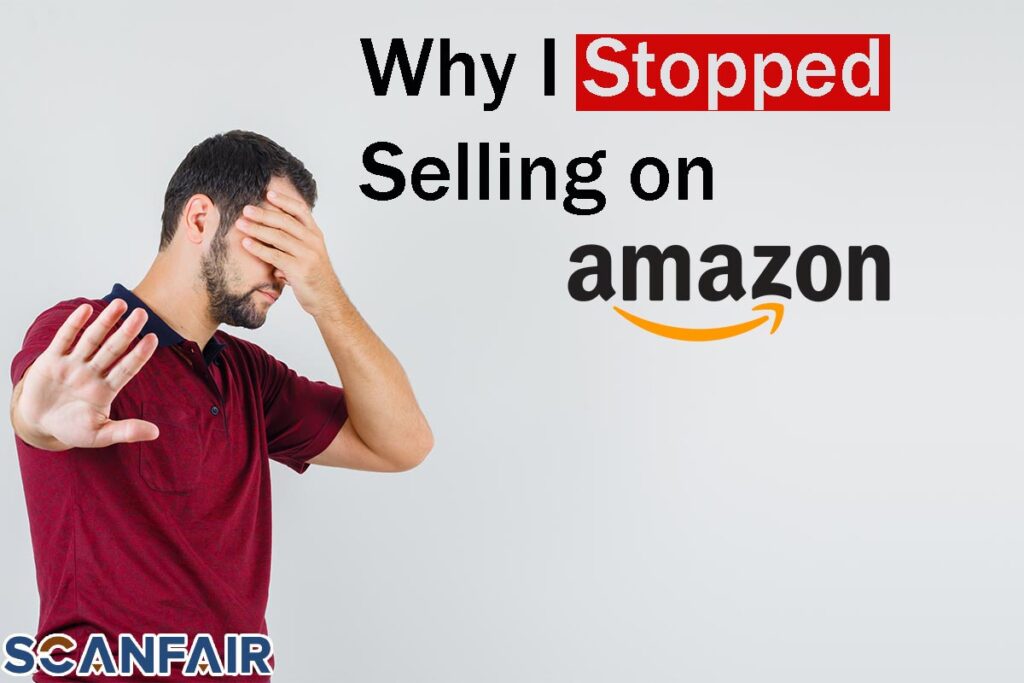Amazon is a great place to sell your products, but it’s not the right fit for every seller. It takes time and effort to figure out if Amazon is right for your brand and business, depending on your company’s needs. Read this Seller Spotlight from Scan Fair to learn why one seller stopped selling on Amazon and how we can help you decide whether it’s right for you.
Why I Stopped Selling on Amazon
I’ve been selling on Amazon since 2013, and I have sold over $5 million in the product, mostly in the outdoor sports category. In August 2019, I closed my Amazon Seller Central account and stopped selling on Amazon. Why would I do that? There are a few reasons. First, I found myself frustrated with the time and energy it takes to manage an Amazon business properly. It’s a 24/7 job with little to no room for mistakes. As you scale and hire employees, the situation doesn’t improve. Second, I feel that Amazon’s business practices, policies, and everyday operations have become increasingly hostile to sellers and brands, and I couldn’t justify the costs and risks.
The Good
Amazon is one of the world’s largest marketplaces, hosts millions of customers, and has a ton of data about consumer buying patterns, tastes, and preferences. That data is incredibly valuable to sellers who want to optimize their product listings for sales. Amazon gives sellers access to millions of customers and data about them. Data is key to any business. With it, you can understand your customers and how to get them to buy from you more frequently. If you’re selling on Amazon, you can also use their data and the tools they provide to make informed decisions about inventory, pricing, and product development. Amazon also takes care of many logistics involved in selling and shipping your products. If you sell FBA (fulfilled by Amazon), they’ll ship and handle returns for you. If you’re selling through a third-party fulfilment service, they also provide data and tools that can help you optimize your operations.
The Bad
Amazon is the dominant online marketplace and marketplace-based eCommerce platform in the world, so they’d inevitably take on some of the worst traits of monopolistic businesses. Amazon’s power over sellers is growing. The company is notorious for its secrecy and unwillingness to provide detailed sales and search rank data. They also have an inconsistent and punitive customer service department notorious for cancelling sales and permanently closing seller accounts. Amazon is notoriously secretive about sales data and searches rank. Data is key to any business, but Amazon is notoriously secretive about how much product you sell, how much you make from those sales, and how well your product ranks in search compared to competitors. Amazon will tell you that keeping the data secret is key to their business model and customer experience, but it also leaves sellers in the dark about what’s working and what isn’t.
Read More: Ultimate Guide About Retail Arbitrage
Amazon Is Not Always the Best Choice for Brands
When you’re just getting started as a seller, it can be easy to look at Amazon as a one-stop shop for all your eCommerce needs. The fact that it’s a marketplace with millions of monthly customers and tons of data can be overwhelming. If you’re a company launching a new product or entering a new market, Amazon may not be the best choice for your eCommerce store. Why? Because Amazon is a marketplace and not a regular eCommerce site. Amazon is not just a shop where you list your product for sale. It’s also where customers leave reviews, ask questions, and comment on products. If you sell on Amazon, you don’t get to control any of that. You also don’t have access to customer data or the ability to customize your shopping experience.
Three Reasons You Shouldn’t Sell on Amazon Right Now
If you’re considering getting into Amazon or are already selling there, here are three reasons you should be cautious. First, Amazon is getting more competitive. It’s harder than ever to rank well, and fewer products are profitable. Plus, Amazon is cancelling more and more sales, either because the product doesn’t meet their requirements or because they think the sales are fraudulent. Second, Amazon doesn’t know your customer as well as you do. Amazon’s goal is to drive sales and make money for its shareholders. Your goal as a brand is to build and engage a customer base. Crafting an amazing customer experience, offering great service and support, and growing your brand are important parts of your business that Amazon doesn’t care about.
Why You Should Still Care About Amazon as a Seller and Marketer
Amazon is the world’s largest marketplace and still growing fast. It’s also a great place to sell your products and connect with new customers. The question is how to do that while minimizing the downsides of selling on Amazon. The best way to proceed is to understand Amazon’s goals and why they make certain decisions. You can then use that knowledge to make your Amazon business more successful while keeping your brand intact. Amazon wants to sell more products and make more money, which is why they have strict product and seller requirements that can be difficult to meet. If you understand why Amazon does what it does, you can work within its system to sell more products, allowing you to collect data about your customers and improve your marketing.
Final Words: Where to Go From Here
Amazon is a great place to sell your product, but it’s not the right choice for every seller. It takes time and effort to figure out if Amazon is right for your brand and business. Read this Seller Spotlight to learn why one seller stopped selling on Amazon and how we can help you decide whether it’s right for you.

